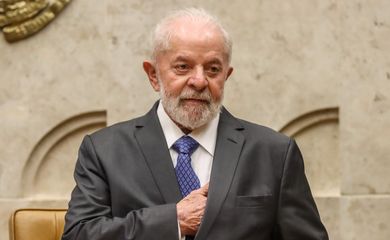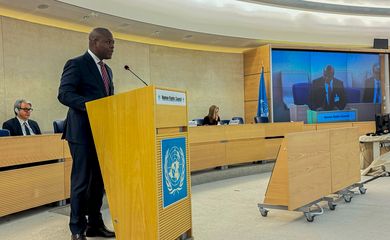Lula pledges to expand partnership with Caribbean countries

Brazilian President Luiz Inácio Lula da Silva highlighted Brazil’s common agenda with the countries of the region at the close of the 46th Summit of Heads of Government of the Caribbean Community (Caricom) on Wednesday (Feb. 28), and promised to open connection routes and deepen partnership ties. “Brazil is once again looking at its surroundings, aware that only together can we have a robust international presence,” he said in Georgetown, Guyana, the country holding the temporary presidency of the group for the first half of 2024.

“We see the bloc as a promising economic partner and a strategic political interlocutor. Brazil has become Caricom’s fifth largest supplier. Our trade flow stood at $2.7 billion last year, but it had exceeded $5 billion in 2008, which shows its potential for growth,” he noted.
Regarding integration, the president also recalled the project to open roads and other forms of air, river, and sea links with the countries of the region.
“Our biggest obstacle is the lack of connections by land, sea, or air. One of the priority integration and development routes for my government is the Guiana Shield, which covers Guyana, Suriname, and Venezuela. We want to pave our way to the Caribbean in a quite literal sense. We will open up corridors capable of meeting supply demands and strengthening food security in the region,” he stated.
The president commented on the fact that Brazil and the Caricom countries converge in 80 percent of the votes at the UN General Assembly. He also pledged to make a financial donation to the Caribbean Development Bank, which Brazil joined back in 2010.
Hunger and climate change
During his 30-minute speech, President Lula addressed central problems affecting the Caribbean, including food insecurity, which assails half of the Caribbean population, according to the United Nations World Food Program, and the effects of climate change, which have even more serious impacts on island and tropical countries.
“I’d like to emphasize that these two problems are at the heart of the debates Brazil is having in international forums. I also want to point out that these two problems have the same root—inequality. Therefore, the fight against inequality in the world is also the fight of the Caribbean nations. It is not possible that on a planet that produces enough food to feed the entire world population, approximately 735 million human beings have nothing to eat,” he argued.
The president took the opportunity to criticize and demand that the rich countries, which have polluted the planet the most over the last few centuries for industrialization, have so far failed to keep their promise to finance the ecological transition and the adaptation of the poorest nations.
“It is not possible that the rich countries, which are mainly responsible for the climate crisis, continue to fail to fulfill their commitment to allocate 100 billion dollars a year to developing countries to tackle climate change. It is not possible for the world to spend $2.2 trillion a year on weapons.”
Citing Brazil’s challenge of hosting the UN Climate Change Conference (COP), to be held in Belém in two years, the president called for united efforts to meet the goal of keeping the global temperature increase to 1.5º C by accelerating the implementation of the commitments already made and adopting more ambitious targets by 2025.
Wars
President Lula also spoke about the impact of the ongoing wars on the planet, which cause destruction, suffering, and deaths, especially of innocent civilians, and cited the war in Ukraine, which he said “makes food and fertilizer prices more expensive,” and the conflict in the Gaza Strip, which he once again classified as genocide.
“A genocide in the Gaza Strip affects all of humanity, because it questions our very sense of humanity. And it confirms once again the preferential option for military spending rather than investment in fighting hunger, in Palestine, Africa, South America, or the Caribbean,” he said.





